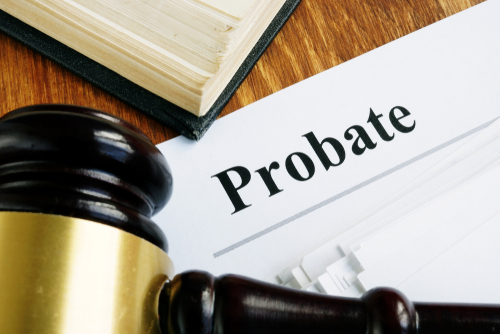Probate is the legal process in which the court decides the validity of a will, and oversees the administration of an estate. It can be a lengthy and expensive process, but there are ways to avoid it. Here at DK Rus Law, we would like to explain what probate is and how you can avoid it.

What Exactly is Probate?
When someone dies, an estate is opened and the Personal Representative (executor) is responsible for seeing that all of thedeceased’s assets are passed on to whomever is named in their Will or, if there is no Will, then according to the “intestate” laws of the State. Probate is the process by which a court will oversee the Personal Representative’s actions to make sure that this is done correctly. Probate can take a minimum of six months, and some estates can be in probate for years. There are also expenses in probate that can run into the thousands. If an estate can avoid probate, that can result in a big savings, and the people inheriting can get their money much faster. There are a couple of simple steps that can be taken to avoid probate.
Add Joint Ownership to Your Bank Account
Adding a joint owner to your bank account, investment account, or real estate deed could help you avoid the probate process, as long as you ensure the account is owned as joint tenants with rights of survivorship. Rights of survivorship guarantee that when one owner dies, their share of that asset will transfer to the other survivor or survivors. However, this method is not without risk; you are not just “putting someone’s name” on the property or account, you are in effect giving them half that asset during your lifetime. Especially with a bank or investment account, that person would have the right to withdraw all the money, without your permission.
Use Beneficiary Designations
A safer method is to use beneficiary designations. If you have any life insurance or assets held in a retirement account like an IRA or 401(k), then you probably already have a beneficiary designation on those assets. By setting up a payable on death (POD) or transfer on death (TOD) account, you ensure your assets will be distributed to your beneficiaries without the need for probate. It is a good idea to check these designations once in a while. You want to make sure that they are still the way you want them, and that you have not listed someone who has since died, or whom is no longer in your life. The advantage to this method is that the beneficiary has no rights to your property or access to it until after you are gone.
File A Life Estate Deed
Some people want to add their children’s name as a co-owner on their deed to avoid probate, but this can lead to a host of problems, including leaving your property vulnerable to the co-owner’s own financial issues, and tax problems down the line. An alternative method in Maryland is to do a Life Estate Deed, that provides that the property passes directly to whomever you want upon your death. There are a couple of different types of these Deeds, so it is important to consult an attorney experienced with these types of Deeds before doing anything.
Establish a Revocable Living Trust
There are a number of different types of trusts used in estate planning, but the most common is a Revocable Living Trust. A revocable living trust is a written agreement that allows you to control your property while you’re alive and well, allows someone you name to control it if you become incapacitated, and allows the property to pass directly to beneficiaries without probate after you die. Simply signing a preprinted revocable living trust from the internet is not enough to avoid probate — you must title your assets in the name of your trust. An estate planning attorney can help you decide if a trust is right for you, and what kind of trust would best suit your situation.
Work with an Experienced Maryland Estate Planning Attorney
Here at DK Rus Law, we are happy to explain the probate process and help you take the appropriate next steps to avoid it, if that is important to you. If you have any questions about getting a Will or Trust, probating a will, or how you can help your family avoid probate after your death, give us a call. Our Maryland estate planning attorney is happy to help.

